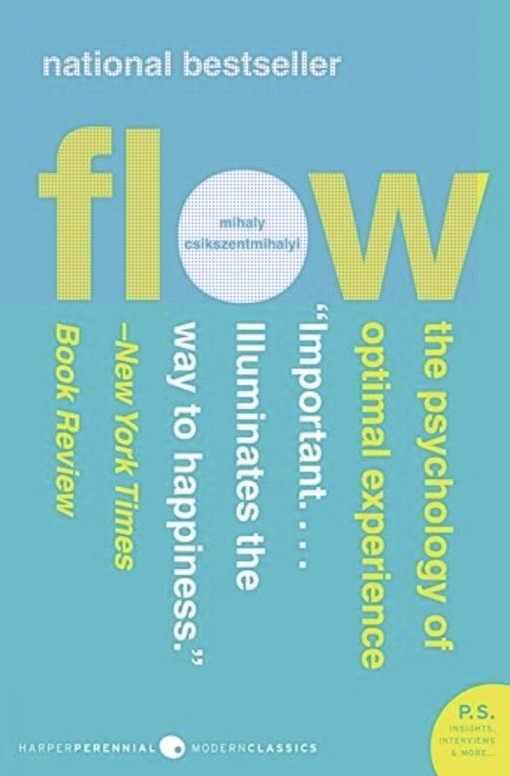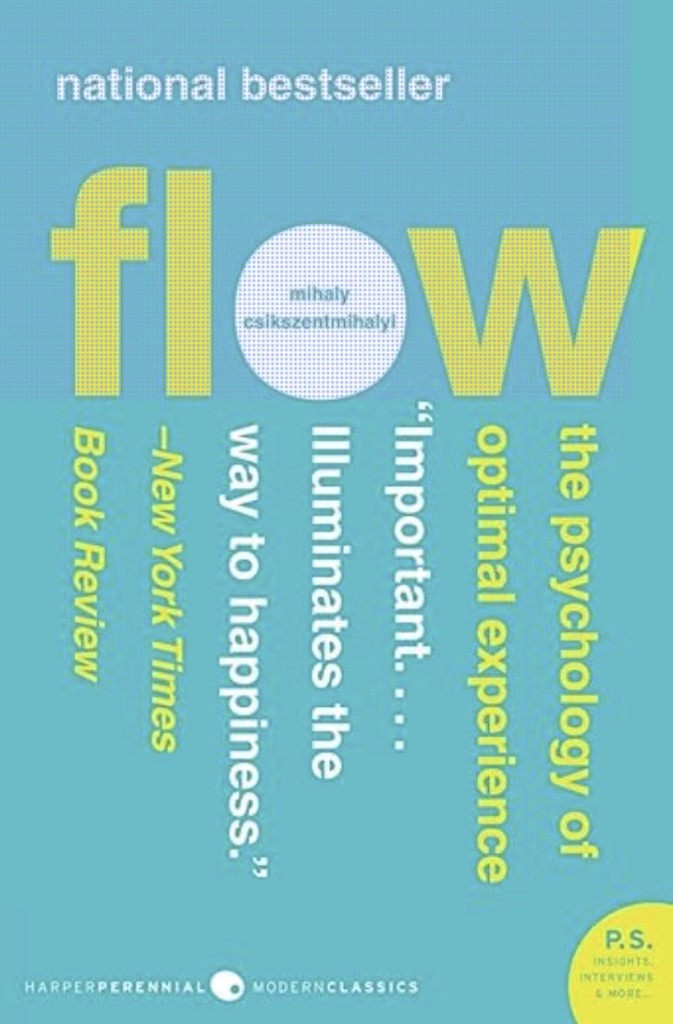Flow states just don’t occur randomly. They require several factors to align. Some factors can be “arranged” while others are context-driven or part of a large feedback loop. I find three concepts central to Chapter 4, The Conditions of Flow of Mihaly Csikszentmihalyi’s Flow.
(more…)June 22, 2024
June 8, 2024
Enjoyment and The Quality of Life, Flow: The Psychology of Optimal Flow by Mihaly Csikszentmihalyi, Re-read Chapter 3, Wk4
Posted by tcagley under Flow, Re-read Saturday | Tags: Csikszentmihalyi, Flow: The Psychology of Optimal Flow, Re-read Saturday |Leave a Comment
Chapter 3 of Mihaly Csikszentmihalyi’s Flow is titled Enjoyment and The Quality of Life. This chapter resonates strongly with me. I have always struggled with the idea that lounging around or mindlessly working is enjoyable. Thinking about those scenarios the word tedious comes to mind. Between my senior year of high school and going away to university I worked in a tire factory. The overall process is quite interesting, however, as the low person on the shift (usually 11 pm to 7 am – dog shift) I did not get the interesting jobs. One of the jobs I had was sorting “green” (uncurled) tires by type into pallets so they could then be taken to the molds. It was mind-numbing work. The person next to me on the line, a PhD in psychology just back from a tour of duty in Vietnam gave me advice. “Make it a game. A game that requires you to think and be present. Something you could strive to win every night.” It made the work enjoyable. It is a piece of advice that has stayed with me since 1974. Chapter 3 explains why a crazy (and looking back, he probably was suffering from PTSD) guy in a factory had such an impact on my life.
(more…)June 1, 2024
The Anatomy of Consciousness, Flow: The Psychology of Optimal Flow by Mihaly Csikszentmihalyi, Re-read Chapter 2, Wk 3
Posted by tcagley under Flow, Re-read Saturday | Tags: Csikszentmihalyi, Flow, Re-read Saturday |Leave a Comment
We consider consciousness this week in our re-read of Mihaly Csikszentmihalyi’s Flow. Consciousness is a process of interpreting and processing thoughts and feelings. The author defines consciousness as a biological process rather than something metaphysical. It is shaped by the information we accept and then assemble into an order that constitutes our reality. The chapter begins with a bit of history. In some cultures in the past, people weren’t judged to be human unless they could master their thoughts and feelings. Mastery is the outcome of a process to order what we see, hear, and feel. Current culture is less impressed with people who attempt to master their thoughts and feelings. People who develop control of thoughts and feelings are viewed as “ridiculous, uptight, or not quite with it.”
(more…)May 25, 2024
Happiness, Flow: The Psychology of Optimal Flow by Mihaly Csikszentmihalyi, Re-read Chapter 1, Wk 2
Posted by tcagley under Re-read Saturday | Tags: Csikszentmihalyi, Flow, Re-read Saturday |Leave a Comment
We begin the meat of our re-read of Mihaly Csikszentmihalyi’s Flow with Chapter 1, Happiness. The Chapter opens by focusing on the definition of happiness or the lack of a universal definition. Csikszentmihalyi highlights that happiness requires an individual perspective stating, “The best moments usually occur when a person’s body or mind is stretched to its limits in a voluntary effort to accomplish something difficult and worthwhile.” What we perceive as important and how we strive towards that goal operationalizes happiness at a personal level. The author’s statement also illuminates why achieving a goal does not generate long-term happiness, when the goal is attained the happiness generated by working toward the goal disappears. Similarly when the goal is dictated, a common problem in hierarchical leadership, the “voluntary effort” part of the formula disappears and so does the happiness derived from stretching toward the goal.
(more…)May 18, 2024
Flow: The Psychology of Optimal Flow by Mihaly Csikszentmihalyi, Re-read Wk 1
Posted by tcagley under Re-read Saturday | Tags: Csikszentmihalyi, Flow, Flow: The Psychology of Optimal Flow, Re-read Saturday |Leave a Comment
I have read and quoted parts of Mihaly Csikszentmihalyi’s Flow over the last ten years. It has been on my list to read cover to cover for several years. My wife pointed out that my copy has yellowed, so it’s time to read now, better late than never :). My copy is the paperback version and is the 15th printing. It is 303 pages broken into ten chapters, a Preface, notes, references, and a postscript section. We begin the re-read today, May 18 and I plan to complete it on August 3 or 10th.
The Preface lays out the Author’s intent to tackle the ideas in the book in an accessible and less academic fashion. Unlike books we have read recently, the author does not lay out specific techniques to achieve flow in the Preface. This section is less content than framing. The goal is to state intent and to acknowledge those who have provided support.
In Flow, Csikszentmihalyi lays out his approach to total involvement. Following on the heels of our read of Deep Work, this re-read flows (pun intended). Use this week to read the acknowledgments in the Preface and Chapter 1. Next week we will dive into Chapter 1 which explores happiness.
Buy a copy of Flow by Mihaly Csikszentmihalyi (Amazon – https://amzn.to/4b5kPmb).




